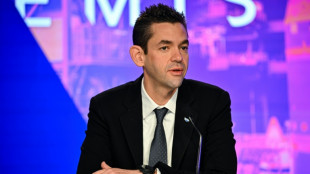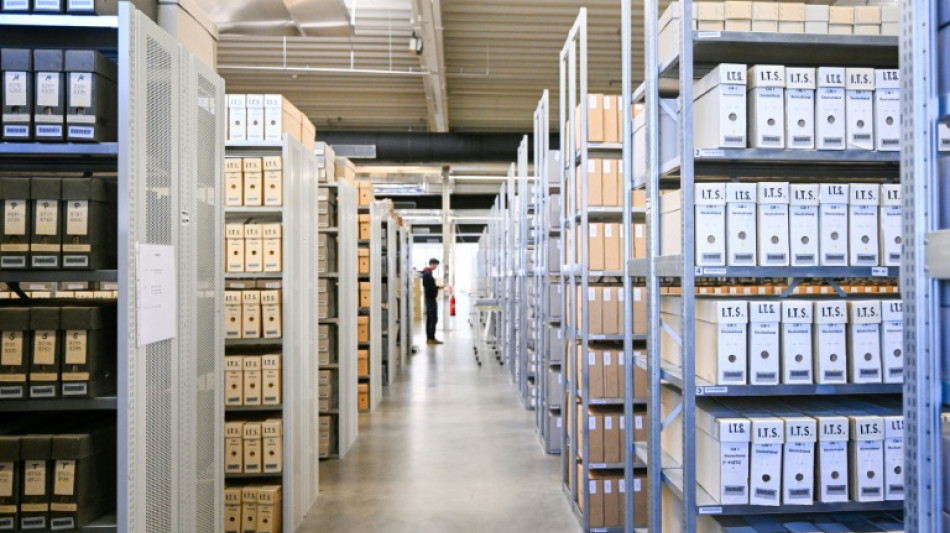
-
 Trump vows to avenge first US deaths as Iran war intensifies
Trump vows to avenge first US deaths as Iran war intensifies
-
Lowry collapses late again, Echavarria snatches victory in Cognizant Classic

-
 Aubameyang strikes twice as Marseille edge Lyon in Ligue 1
Aubameyang strikes twice as Marseille edge Lyon in Ligue 1
-
Infantino says players who cover mouths when speaking could be sent off

-
 Bolsonaro son rallies the right as thousands protest Brazil government
Bolsonaro son rallies the right as thousands protest Brazil government
-
Juve stay in Champions League hunt with last-gasp Roma draw

-
 Maersk suspends vessel transit through Strait of Hormuz
Maersk suspends vessel transit through Strait of Hormuz
-
France, Germany, UK ready to take 'defensive action' against Iran

-
 Knicks halt Spurs' 11-game NBA winning streak
Knicks halt Spurs' 11-game NBA winning streak
-
EU warns against long war, urges 'credible transition' in Iran

-
 Bored of peace? Trump keeps choosing war
Bored of peace? Trump keeps choosing war
-
Arteta embraces Arsenal's 'Set-Piece FC' label after corners sink Chelsea

-
 Sevilla rescue derby draw to deal Betis top four setback
Sevilla rescue derby draw to deal Betis top four setback
-
India need 'special effort' to beat England in semi-final: Gambhir
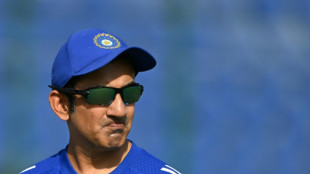
-
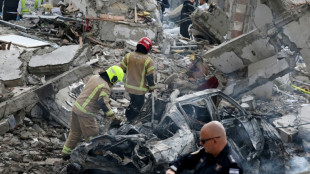 'A terrible day,' says Israel community shaken by deadly Iranian strike
'A terrible day,' says Israel community shaken by deadly Iranian strike
-
Arsenal corner Chelsea into submission, Man Utd climb to third
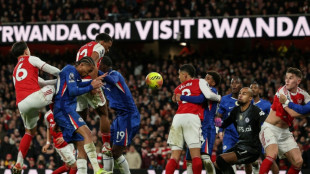
-
 Arsenal win set-piece battle to sink Chelsea in title boost
Arsenal win set-piece battle to sink Chelsea in title boost
-
What future for Iranian leadership after Khamenei's death?
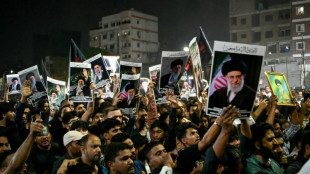
-
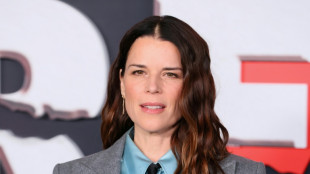 'Scream 7' makes a killing at N. America box office
'Scream 7' makes a killing at N. America box office
-
Thousands stranded as Iran conflict shuts Mideast hubs
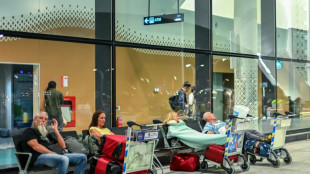
-
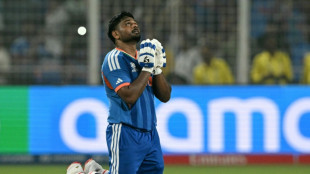 Samson's 97 puts India into T20 World Cup semi-final against England
Samson's 97 puts India into T20 World Cup semi-final against England
-
Latest developments as Iran retaliates to US-Israel strikes that killed Khamenei
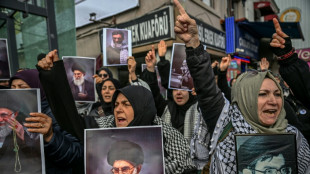
-
 Spurs have 'big problems' says Tudor as relegation risk persists
Spurs have 'big problems' says Tudor as relegation risk persists
-
Dortmund captain Can out for season with ACL tear

-
 Leweling doubles up as Stuttgart sink sorry Wolfsburg
Leweling doubles up as Stuttgart sink sorry Wolfsburg
-
Man Utd climb to third, Fulham sink sorry Spurs

-
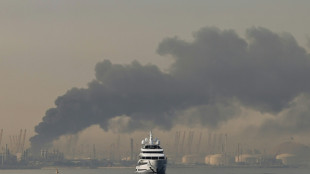 Iran strikes send VIP Dubai influencers 'back to reality'
Iran strikes send VIP Dubai influencers 'back to reality'
-
Briton Brennan bursts to Kuurne-Bruxelles-Kuurne triumph

-
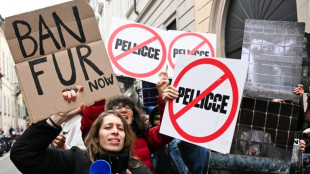 Activists pressure Milan Fashion Week to go fully fur-free
Activists pressure Milan Fashion Week to go fully fur-free
-
Blasts in Kabul as Afghan govt says responding to Pakistan attacks
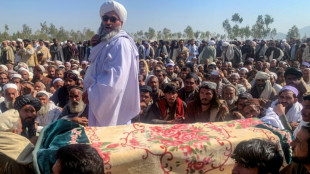
-
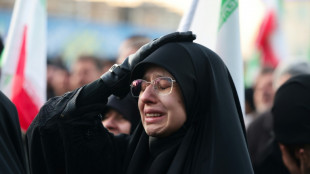 Iranians grieve, celebrate, worry after Khamenei's killing
Iranians grieve, celebrate, worry after Khamenei's killing
-
Latest developments as Iran lashes out after US-Israel strikes kill Khamenei
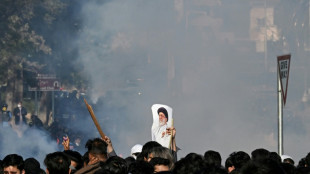
-
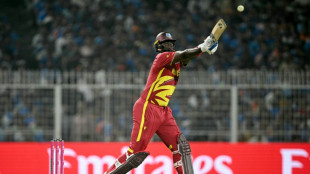 West Indies post 195-4 against India in T20 World Cup do-or-die clash
West Indies post 195-4 against India in T20 World Cup do-or-die clash
-
South Africa 'embrace pressure' and favourites tag, says coach
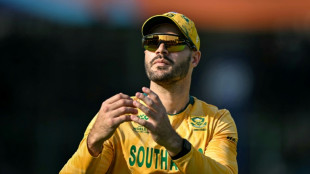
-
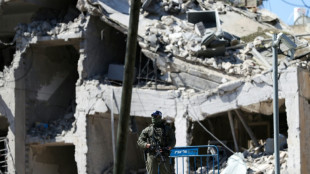 Tel Aviv residents say ready to withstand more Iranian attacks
Tel Aviv residents say ready to withstand more Iranian attacks
-
Russia loses key ally leader as Putin slams Khamenei 'cynical' killing
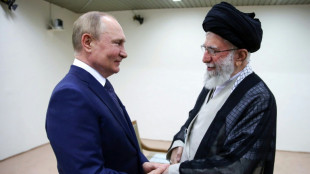
-
 AC Milan consolidate top-four credentials with win at Cremonese
AC Milan consolidate top-four credentials with win at Cremonese
-
Flights of fancy at Bottega Veneta, atmospheric mood at Armani in Milan

-
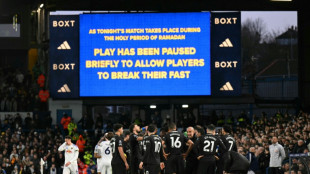 Guardiola calls for respect after Ramadan break is booed
Guardiola calls for respect after Ramadan break is booed
-
Afghanistan warns Iran war will impact whole region
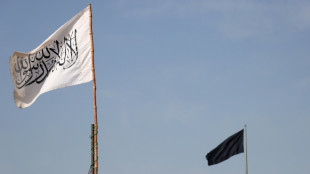
-
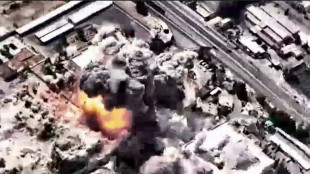 Iran launches fresh strikes across Gulf after vowing revenge for slain leader
Iran launches fresh strikes across Gulf after vowing revenge for slain leader
-
OPEC+ hikes oil production by more than expected following outbreak of Iran war
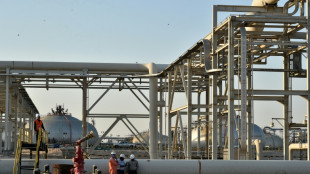
-
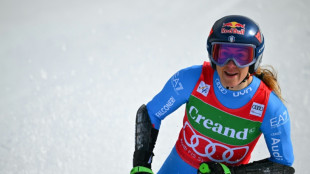 Goggia tightens grip on World Cup super-G with victory in Andorra
Goggia tightens grip on World Cup super-G with victory in Andorra
-
Belgium seizes Russian 'shadow fleet' tanker
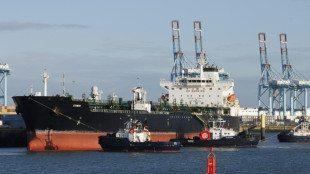
-
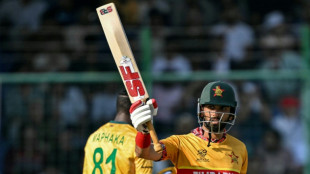 Raza steers Zimbabwe to 153-7 against South Africa
Raza steers Zimbabwe to 153-7 against South Africa
-
Kerr on target as Australia make winning start to Women's Asian Cup

-
 Marquez says 'unlucky' to retire from MotoGP season opener
Marquez says 'unlucky' to retire from MotoGP season opener
-
9 killed in pro-Iran protest at US consulate in Pakistan's Karachi
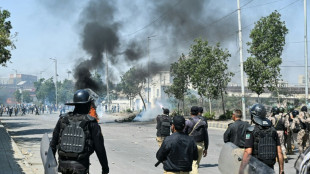
-
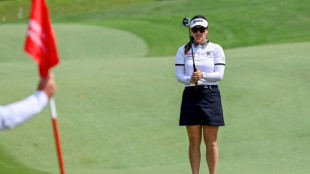 Green clinches Singapore title with help from caddie husband
Green clinches Singapore title with help from caddie husband
-
More flights cancelled as Iran conflict shuts Mideast hubs
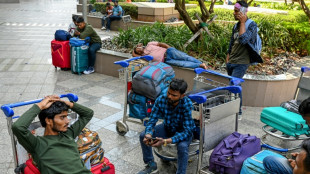

German archive where victims of the Nazis come back to life
If it wasn't for the Arolsen Archives, half-sisters Sula Miller and Helen Schaller would never have met.
American Miller and German Schaller only recently discovered they had the same father -- a Holocaust survivor who emigrated to the US.
Miller "contacted us because she was looking for information about her father", said Floriane Azoulay, director of the Arolsen Archives, the world's largest repository of information on the victims and survivors of the Nazi regime.
Mendel Mueller, a Jew born in the Austro-Hungarian Empire, was incarcerated in two Nazi concentration camps: Buchenwald in northern Germany and Auschwitz in what was then occupied Poland.
An investigation of the archives revealed he had another daughter, Helen, who was still alive and living in Germany.
"Thanks to us, the two women got to know each other," Azoulay said.
Eighty years after the end of World War II, people all over the world are still discovering the fate of their family members sent to Adolf Hitler's Nazi death camps.
The vast Arolsen Archives, located in the quaint spa town of Bad Arolsen in central Germany, contain millions of documents and objects.
When Miller contacted the archive to find out about her father, researchers stumbled upon a 1951 letter from his wife looking for his whereabouts.
Shortly after the war, Mueller had married a German woman -- the mother of his daughter Helen, born in 1947.
But some time later, he left for the US without her and started a new life there, marrying an Austrian woman -- who gave birth to Sula in 1960.
Four years after Miller's initial inquiry, investigators from Bad Arolsen managed to track Helen down and the two sisters met for the first time last year.
"Their physical resemblance was striking," Azoulay said.
The two had complicated and conflicting views on their father, but "their meeting helped them make peace with the past", she said.
- Watches, wallets and rings -
Although 90 percent of the material held by the Arolsen Archive has now been digitised, the complex still stores some 30 million original documents on almost 17.5 million people.
There are also thousands of items such as watches, rings and wallets collected from the old Nazi camps.
The archive was originally set up by the Allies in early 1946 as the International Tracing Service to help people find relatives who had disappeared during the war.
It mostly dealt with Jews but also Roma, homosexuals, political dissidents and "racially pure" children kidnapped by the Nazis as part of a programme to address the falling birth rate.
Bad Arolsen was chosen because it had escaped Allied bombing and had a working telephone network, and because of its location at the centre of Germany's four occupation zones (French, American, British and Soviet).
At first the service was run by a curious mix of members of the Allied forces, Holocaust survivors from all over Europe and Germans -- including former members of the Nazi party.
But from the 1950s onwards, as many of the survivors left the country, German staff numbers increased.
Today, the archive has around 200 employees, assisted by some 50 volunteers around the world.
And it is still handling around 20,000 enquiries per year, according to Azoulay, often from children or grandchildren of victims or survivors who want to know what happened to them.
Like Abraham Ben, born to Polish-Jewish parents in a displaced persons camp in Bamberg, southern Germany, in May 1947.
- No grandparents -
Now almost 80, Ben is still hoping to shed light on the fate of his father's family, who were left behind when he escaped from the Warsaw Ghetto.
"There is a high probability that they died in the camps," he said.
Ben's father "never talked about (the Holocaust)... and we never asked him about it. We felt it was too painful for him."
Almost no one had grandparents in the centre for Jewish refugees where Ben was born because the elderly -- too weak to work -- were first to be killed in the camps.
"At the age of 10, I realised other children had grandparents because I went to a German school and my classmates would describe the gifts they had given them at Christmas."
Ben said he is hoping to find "cousins who may have survived" among the children of his father's five brothers and sisters.
The archives at Bad Arolsen include documents issued by the Nazi party, such as Gestapo arrest warrants, lists of people to be transported to the camps and camp registers.
The documents are often surprisingly detailed, given the low chances of survival of the people listed in them.
In Buchenwald, the camp register kept a record of every prisoner's height, eye and hair colour, facial features, marital status, children, religion and which languages they spoke, as well as their name, date of birth and deportation number.
- 'Best day of her life' -
From the beginning, the records were sorted according to a phonetic alphabet, since the same name can be spelled differently in different languages.
"For example, there are more than 800 ways to write 'Abrahamovicz'," said Nicole Dominicus, head of archive administration.
Later the archives were expanded to include files compiled by the Allies, as well as correspondence between the Red Cross and the Nazi administration.
The files also contain letters written by people searching for their lost relatives.
In a letter written to the International Tracing Service in 1948, a mother who survived Auschwitz asks about her missing daughter, who she was separated from in the camp.
Volunteers working for the archives outside Germany also help trawl through records in other countries.
Manuela Golc, a volunteer in Poland, recently met a 93-year-old woman to hand over a pair of earrings and a watch that had belonged to her mother, who was deported in 1944 after the Warsaw Uprising.
"She told me it was the best day of her life," Golc said, with tears in her eyes.
German Achim Werner, 58, was "shocked" when the archives contacted him to let him know they had his grandfather's wedding ring, taken from him when he arrived at the Dachau concentration camp.
Werner had visited the camp near Munich several times, on school excursions and as an adult, without knowing that his grandfather had been held there.
"We knew that he was detained in 1940, but nothing after that," he said.
Werner does not know why his grandfather was imprisoned, and since the archives have no further information about him, he probably never will.
But he wants to keep the man's memory alive and has given the wedding ring to his daughter.
"She will wear it as a pendant and then pass it on to her children," he said.
M.Thompson--AMWN



